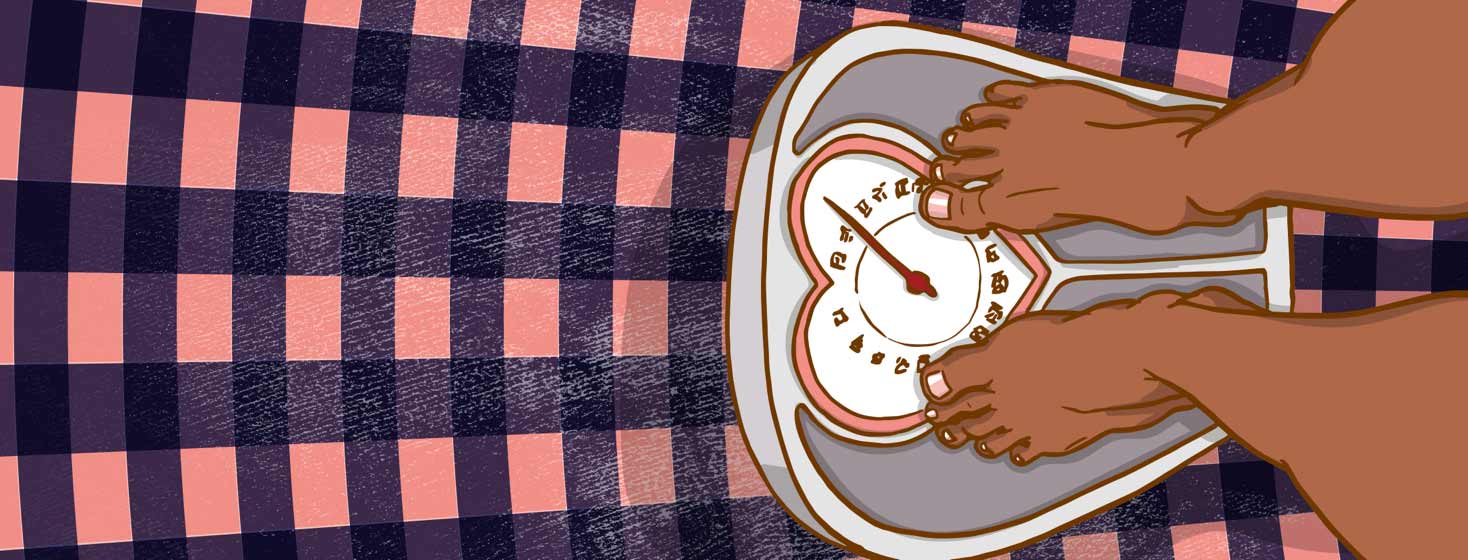Weight Gain and HIV Treatment
Taking medicine to treat HIV can mean better health. It also helps keep the illness in check.1
As doctors and scientists continue to learn more about HIV medication, they have linked some of the drugs to weight gain. They have found that 1 in 6 people who start treatment gain 10 percent or more of their body weight over 1 to 2 years.1
Weight gain can be a positive result of beginning treatment, especially for those who lost a lot of weight from HIV. Scientists call this a "return to health" effect. But too many extra pounds raise your chances of forming health conditions like:1
- Type 2 diabetes
- Diseases of the heart and blood vessels
- Chronic kidney disease
- Cancer
Why do people gain weight after starting HIV treatment?
Scientists are still working to figure out why people being treated for HIV gain weight. But they have a few theories.
One idea is that weight gain is a sign of a restored immune system. When you have an ongoing viral infection like HIV, your body loses the fat it had stored. Taking HIV drugs helps boost your immune system, resulting in weight gain.2
We also know that older HIV drugs curb weight gain. The newer drugs that are usually used first for treatment these days may not. So, switching to a different drug may affect your weight.1
Finally, researchers think specific classes of HIV drugs could impact how your body controls appetite and stores fat. This includes integrase inhibitors, which block HIV from replacing DNA in CD4 cells.3-5
Which HIV drugs are more likely to cause weight gain?
Certain HIV treatments may affect your weight more than others. Studies link greater weight gain to:1,6,7
- Antiretrovirals introduced in the past decade, including integrase inhibitors and tenofovir alafenamide (TAF)
- People who take a combination therapy that includes certain integrase inhibitors and TAF
- People who take the integrase inhibitor dolutegravir with TAF
Who has a higher chance of gaining weight?
Research shows some groups are more likely to put on weight after starting HIV treatment. They include:1,8,9
- Those who have low CD4 counts (a marker of low immunity) and a high viral load
- Women
- Black people
- People who are underweight or overweight before starting treatment
What are some ways to manage treatment-related weight gain?
Right now, it is unclear whether lifestyle changes like diet and exercise can offset weight gain from antiretroviral treatment. In general, though, adopting a healthy lifestyle benefits everyone, including people living with HIV. Here are some ideas:1,10
Eat nutritious foods
A balanced diet gives you energy and nutrients. Your body needs these to battle illnesses like HIV. Healthy food also helps you manage:10
- Your weight
- HIV symptoms
- Additional problems linked to HIV
Talk to your doctor or a nutritionist. They can tell you which foods you should eat. They can also tell you which foods to avoid or eat in moderation.10
Get regular exercise
Physical activity can help you maintain or lose weight. Your immune system will also be able to fight off illness better. Plus, being active is good for your mental health and boosts your:10
- Strength
- Stamina
- Overall fitness
People living with HIV can enjoy the same exercises as those without the condition. The best way to stick with an exercise program is to find one you enjoy.10

Join the conversation